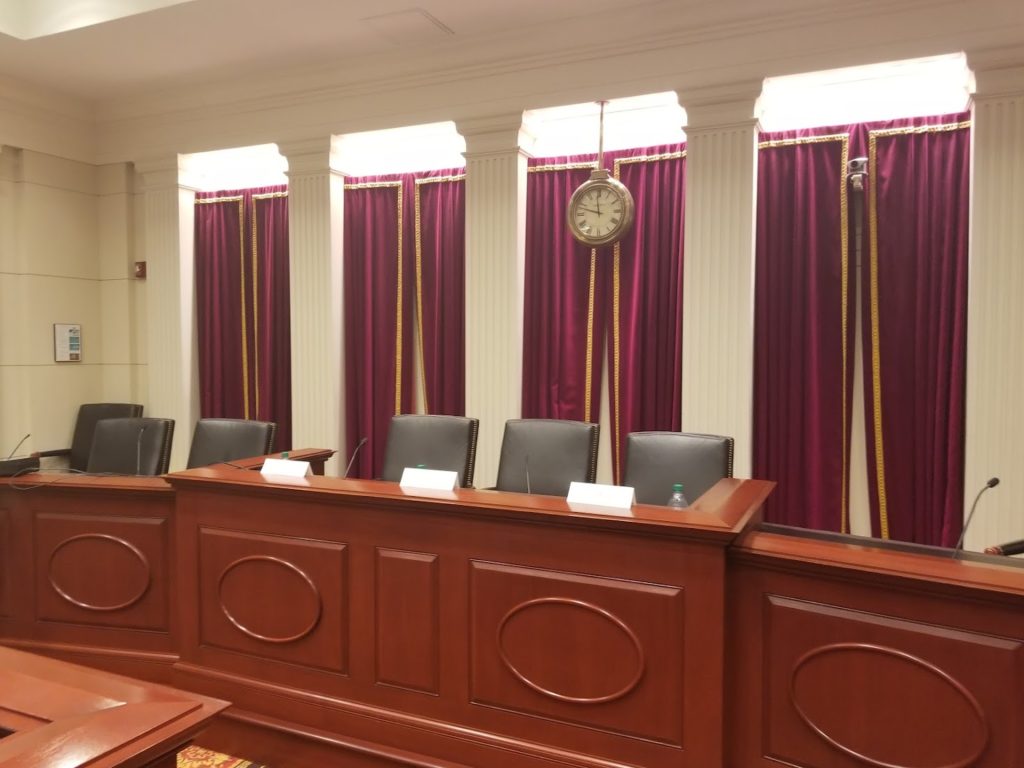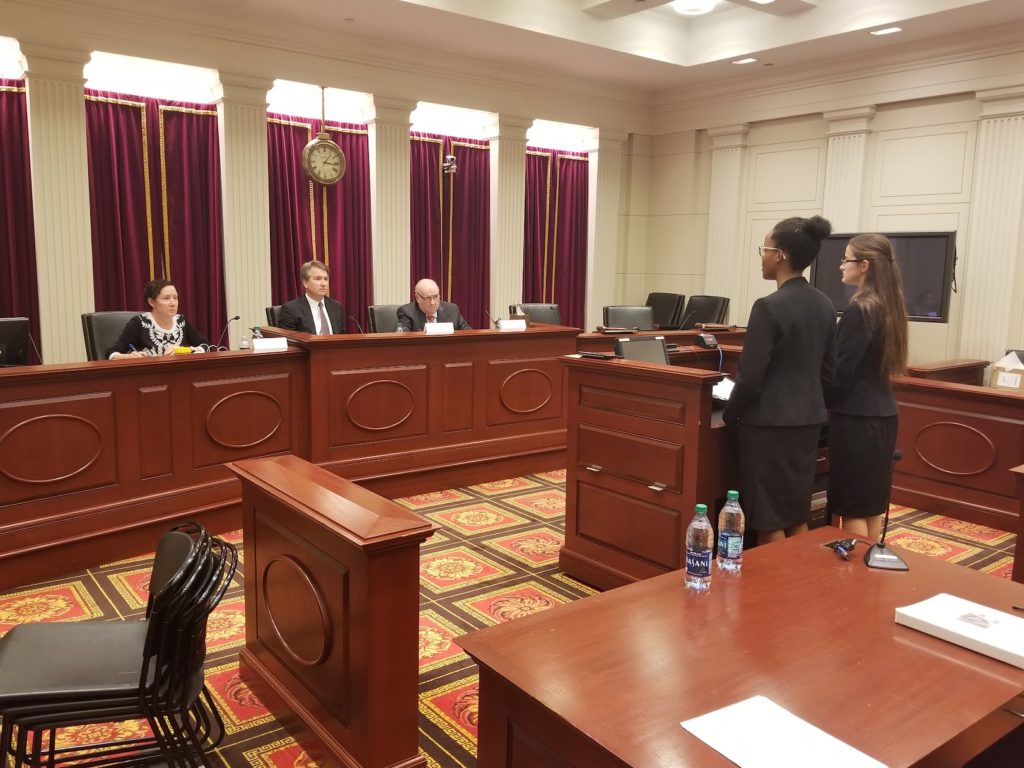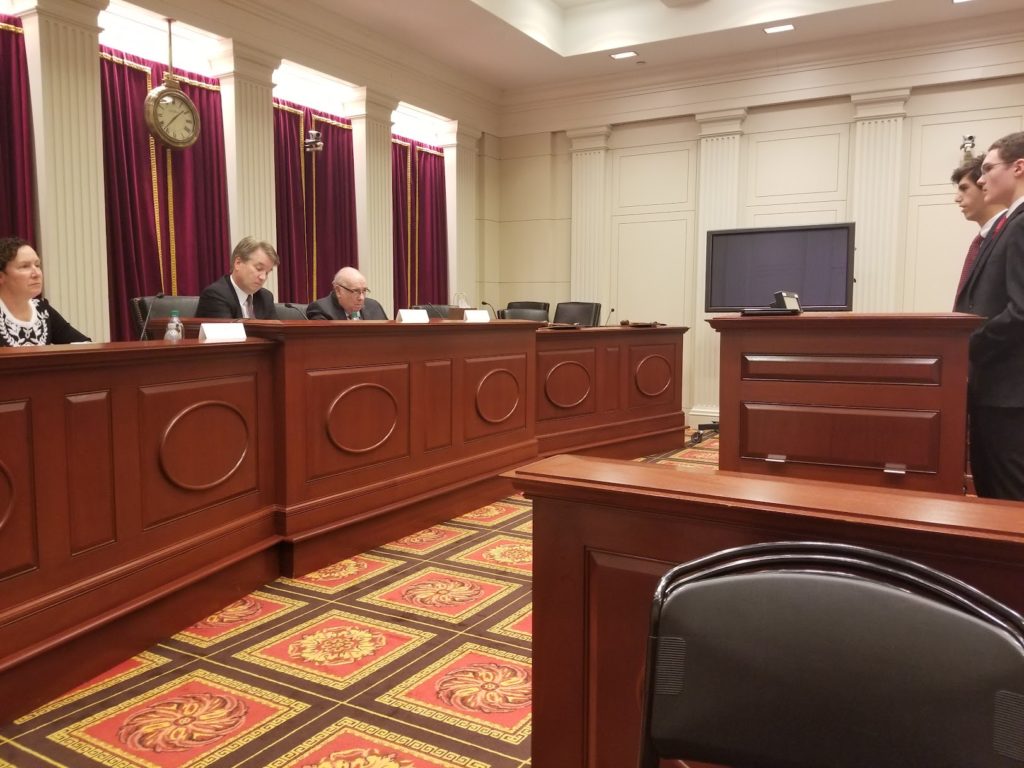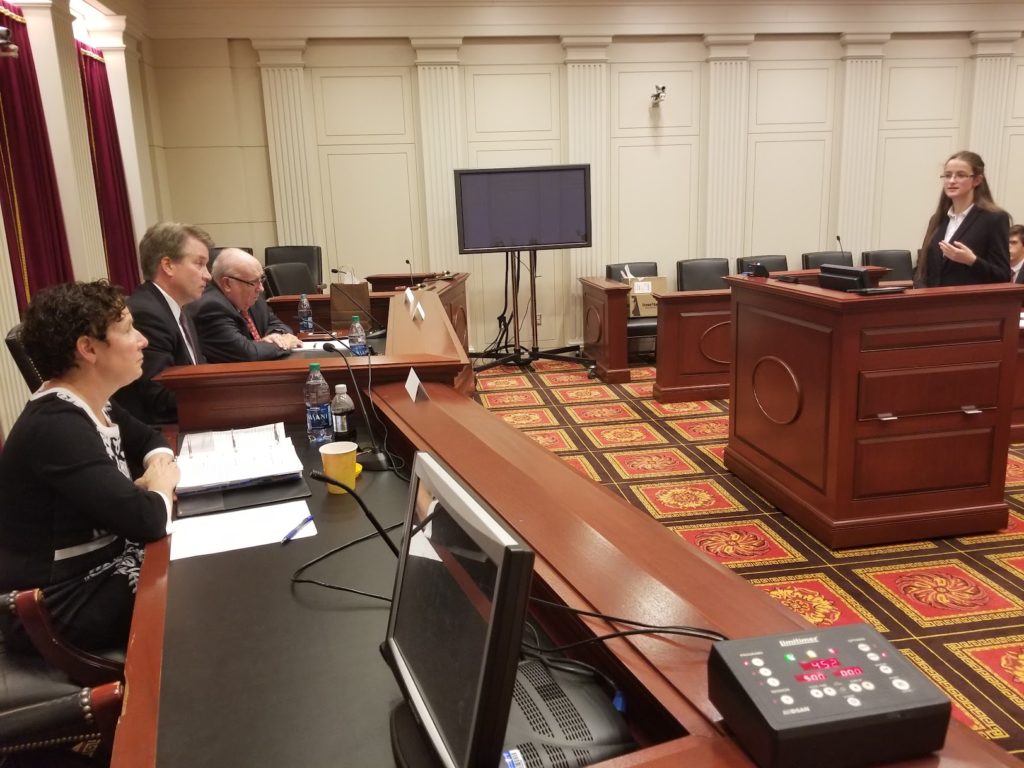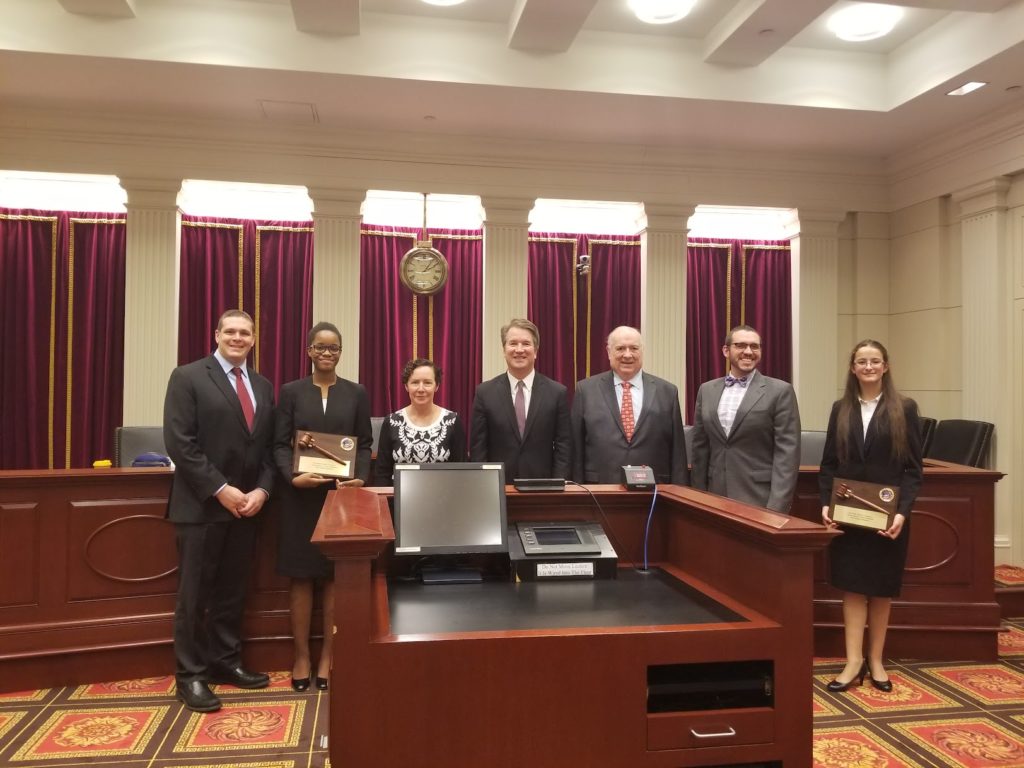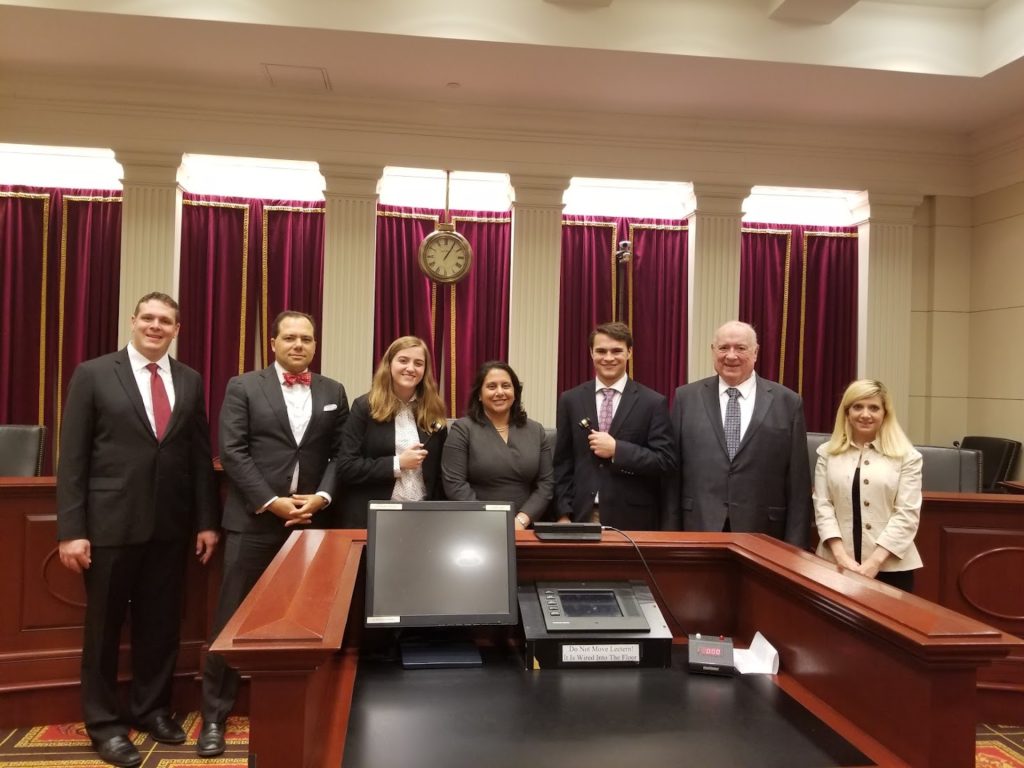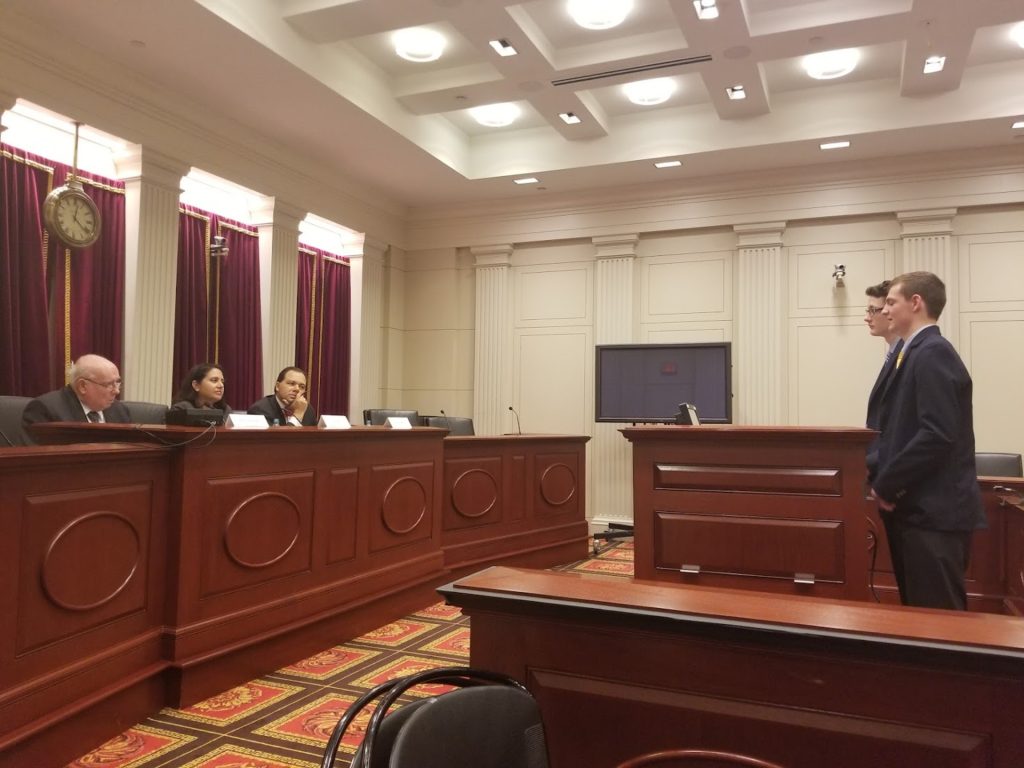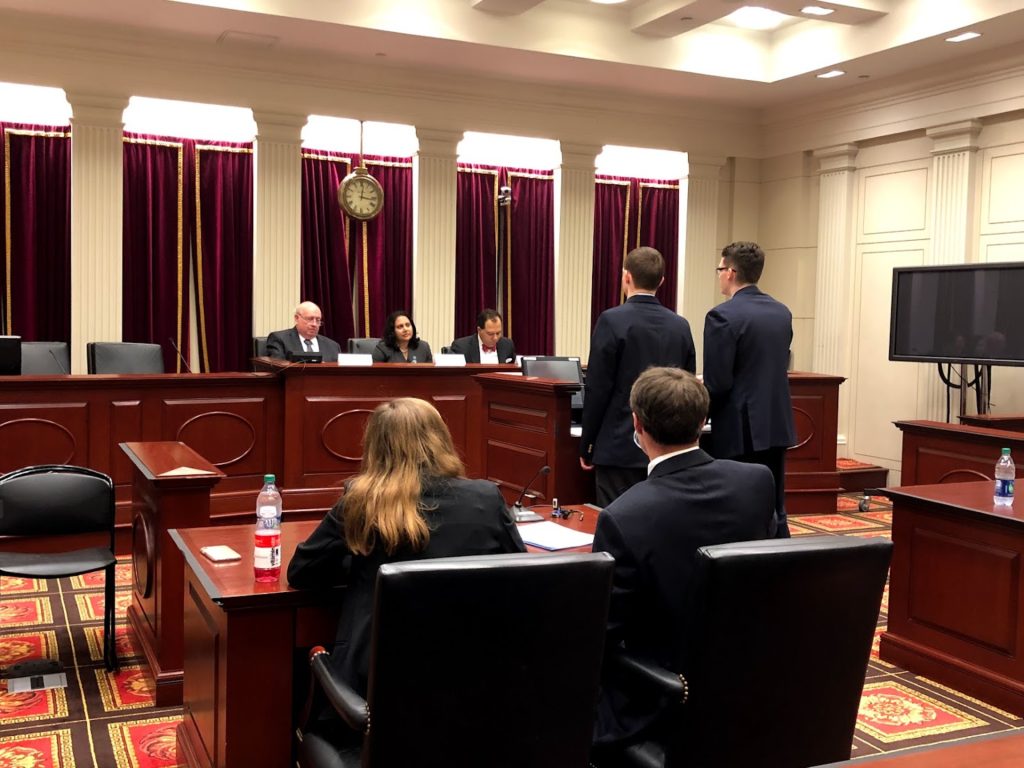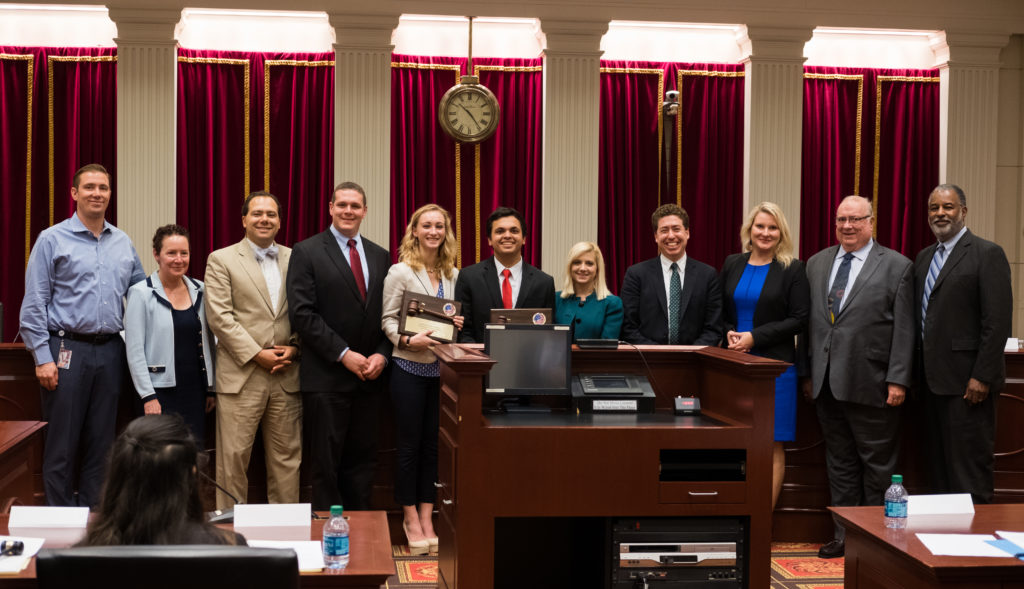O'Connor-Ratcliff v. Garnier
United States Court of Appeals for the Ninth Circuit - Opinion (July 27, 2022)
Supreme Court Docket No. 22-55118 (docketed on October 4, 2022)
Certiorari granted by the United States Supreme Court (January 24, 2022)
Oral Argument Scheduled for April 24, 2023.
Case Information
Parties
- Petitioners: Michelle O'Connor-Ratcliff and T.J. Zane, members of Poway Unified School District Board fo Trustees
- Respondents: Christopher and Kimberly Garnier, the parents of school children
Sources and Materials
Supreme Court Filings
Briefs from Florida
Briefs from Texas
Briefs from NetChoice
Brief from the United States
Amicus
Briefs from the Petitioners and Respondents:
- Petition for Writ of Certiorari
- Opposition to Petition for Writ of Certiorari
- Reply ISO of Petition for Writ of Certiorari
- Petitioners’ Merits Brief
- Respondents’ Merits Brief
- Petitioners’ Merits Reply Brief
Resources in Support of Petitioners:
Resources in Support of Respondents:
The Precedents
- Kennedy v. Bremerton School District, 142 S. Ct. 2407 (2022).
- Garnier v. O’Connor-Ratcliff & Zane, (9th Cir. 2022).
- Lindke v. Freed, 37 F.4th 1199 (6th Cir. 2022).
- Manhattan Community Access Corporation v. Halleck, 139 S. Ct. 1921 (2021).
- Knight First Amend. Inst. v. Trump, 953 F.3d 216 (2d Cir. 2020).
- Packingham v. North Carolina, 582 U.S. 98 (2017).
- Brentwood Academy v. Tennessee Secondary School Athletic Association, 531 U.S. 288 (2001).
- West v. Atkins, 487 U.S. 42 (1988).
- Screws v. United States, 325 U.S. 91 (1945).
Tournament Instructions
Teams of two high-school students will write an appellate brief, and present oral arguments, addressing this question:
- These cases concern laws enacted by Florida and Texas to regulate major social media platforms like Facebook, YouTube, and X (formerly known as Twitter). The two laws differ in some respects, but both restrict platforms’ ability to engage in content moderation by removing, editing, or arranging user-generated content; require platforms to provide individualized explanations for certain forms of content moderation; and require general disclosures about platforms’ contentmoderation practices.
- The questions presented are:
- 1. Whether the laws’ content-moderation restrictions comply with the First Amendment.
- 2. Whether the laws’ individualized-explanation requirements comply with the First Amendment.
Petitioners will argue that laws' content moderation restrictions and individualized-explanation requirements do comply with the First Amendment.
Respondents will argue that laws' content moderation restrictions and individualized-explanation requirements do comply with the First Amendment.
Phase 1 - Research and Write Your Brief
Coaches can register their teams at the Institute for Competition Sciences (ICS). ICS will generate a number for each team. Odd-numbered teams will represent the Petitioners and even-numbered teams will represent the Respondents.
Teams will research and write their briefs. Carefully review the lesson plan. The brief must be a minimum of 2,000 words. Please download this template. The brief should have the following sections:
- Table of Cited Authorities: List all of the original sources, and other documents you cite in your brief.
- Summary of Argument: State your position succinctly in 250 words or less.
- Argument: Structure your argument based on at least five Supreme Court precedents. The more authorities you cite, the stronger your argument will be–and the more likely your team will advance.
- Conclusion: Summarize your argument, and argue how the Supreme Court should decide this issue.
Be sure to proofread your work. The work must be yours, and you may not seek help from anyone else–including attorneys or law students. Students who submit plagiarized briefs will be disqualified.
Please review the winning submissions from previous years:
- OT 2022 - Students for Fair Admissions v. Harvard
- OT 2021 - New York State Rifle & Pistol Association v. Bruen
- OT 2020 – Torres v. Madrid
- OT 2019 – Espinoza v. Montana Department of Revenue
- OT 2018 – Timbs v. Indiana
- OT 2017 – Carpenter v. United States
- OT 2016 – Trinity Lutheran Church v. Comer
- OT 2015 – Abigail Fisher v. University of Texas, Austin (II)
- OT 2014 – Zivotofsky v. Kerry
- OT 2013 – National Labor Relations Board v. Noel Canning
- OT 2012 – Abigail Fisher v. University of Texas, Austin (I)
Phase 2 - Virtual Mentoring
Teams that register before November 3, 2023 will be invited to participate in a virtual mentoring session. These sessions will be hosted during the week of November 27, 2023. The Harlan Institute will match each class with a mentor from our network. These sessions will be helpful to finalize your briefs and prepare your preliminary round arguments.
Phase 3 - Preliminary Round
For the preliminary round, each team must prepare a YouTube video. The argument must be at least 15 minutes in length. Coaches will ask their students the following ten questions:
- Did the school board members communicate about job related matters with the public over social media?
- Did the school board members have any governmental duty or authority to communicate with the public over social media?
- What is the state action doctrine?
- Is it state action when a public official blocks a member of the public on social media?
- How does the state action doctrine protect the free speech rights of the school board members?
- How does the state action doctrine restrict the free speech rights of the parents?
- Should the appearance or content of a public official's social-media page determine whether its content is state action?
- Can a public official have a "personal" social-media account if there are any postings that relate to his job?
- Is the social media account of the school board members public or private property?
- If a public official's social-media page does not constitute state action, can the official block people on the basis of their race or political views?
Teams will upload a PDF of their brief, as well as a link to their YouTube video to the Institute of Competition Sciences. The deadline for the preliminary round will be December 16, 2022. The brief and preliminary round video will be scored based on this rubric.
Phase 4 - Virtual Rounds
We will hold the Virtual Rounds over Zoom:
- 2/13/23 and 2/15/23: Semifinal Round
- 2/27/23 and 3/1/23: Round of 8
- 3/27/23 and 3/29/23: Round of 4
The virtual rounds will be scored based on this rubric. This video offers five tips to prepare for oral argument:
Phase 5 - Championship Round Rounds
The top teams will receive a free trip to Washington, D.C. to argue the championship round before federal judges on April 24, 2023.

